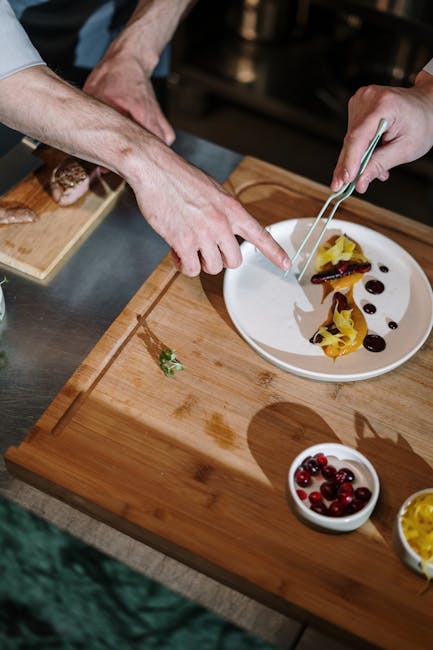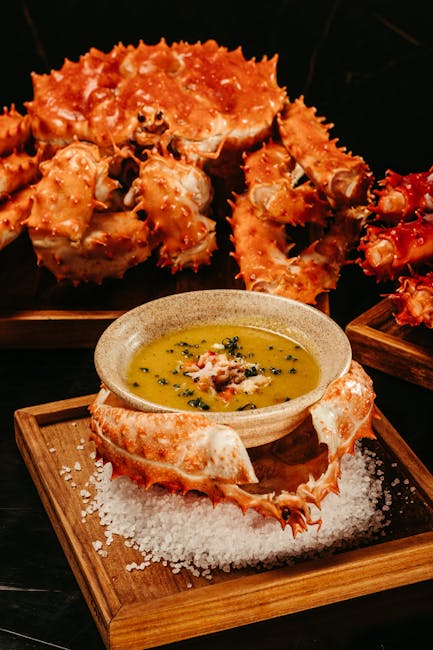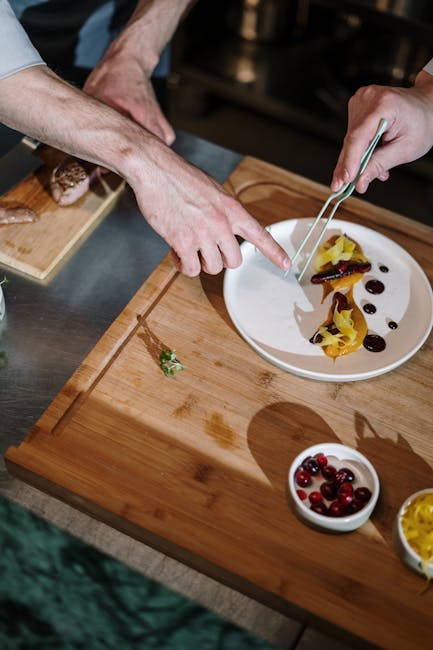The King of Chefs and Chef of Kings: A Culinary Journey Through History and Power
The title “King of Chefs and Chef of Kings” evokes an image of unparalleled culinary skill and influence. It speaks to a level of expertise that transcends mere cooking, hinting at a position of power and prestige, often intertwined with the fate of monarchs and empires. Throughout history, certain chefs have risen to this level, their lives and creations leaving an indelible mark on gastronomy and royal history. This exploration delves into the lives and legacies of these culinary titans, examining the confluence of power, politics, and palate that shaped their extraordinary careers.
The Concept of the Royal Chef: A Historical Overview
The role of the royal chef has existed for centuries, evolving alongside societal structures and culinary advancements. In ancient civilizations, preparing food for the ruling class was a task of significant importance, often entrusted to individuals with both culinary skill and a deep understanding of food safety and preservation. The ancient Egyptians, for instance, had highly organized kitchens staffed by specialized cooks responsible for creating elaborate feasts for pharaohs and nobles. Their recipes, though often lost to time, showcase the level of sophistication already present in early royal kitchens.
The rise of medieval courts in Europe saw the chef’s role solidify, with dedicated kitchen staff and elaborate culinary traditions developing. The medieval kitchen was a bustling hub of activity, often employing dozens of people, from cooks and bakers to butlers and scullery maids. The chef, overseeing this vast operation, held a position of considerable responsibility and often wielded significant influence within the court.

The Evolution of Culinary Techniques and Royal Palates
The medieval period, marked by the Crusades and increased trade, saw a significant influx of new ingredients and culinary techniques into European kitchens. Spices from the East became highly sought-after, and the use of complex sauces and elaborate presentations emerged as markers of royal status. Royal chefs of this era were instrumental in adapting these new ingredients and methods, shaping the development of European cuisine.
The Renaissance brought a renewed interest in classical learning, influencing culinary practices as well. Royal chefs began to experiment with more refined techniques, emphasizing presentation and elegance. The rise of the printed cookbook also contributed to the dissemination of culinary knowledge, allowing chefs to learn from each other and refine their techniques.
Notable Figures: The Kings of Chefs and Chefs of Kings
Identifying specific individuals as the ultimate “King of Chefs” or “Chef of Kings” is challenging due to the lack of comprehensive historical records for many eras. However, several figures stand out for their exceptional skills, influence, and contributions to culinary history.

Antonin Carême: The Architect of Gastronomy
Antonin Carême (1784-1833), often called the “King of Chefs,” revolutionized French haute cuisine. He elevated the profession to an art form, meticulously developing recipes and techniques that are still influential today. Carême’s culinary philosophy emphasized simplicity, elegance, and the artful presentation of food. His work profoundly impacted subsequent generations of chefs, solidifying his status as a legendary figure.
- Influence: Established the professionalization of cooking, emphasizing precision and artistry.
- Contributions: Developed classic sauces and techniques, authored influential cookbooks, designed elaborate table displays.
- Significance: His meticulous approach and emphasis on artistry laid the foundation for modern haute cuisine.
Auguste Escoffier: The Modernizer of Cuisine
Auguste Escoffier (1846-1935) is another culinary giant, often associated with the title of “Chef of Kings.” He streamlined kitchen operations, introducing the brigade de cuisine system which is still used in professional kitchens today. Escoffier’s emphasis on efficiency and organization revolutionized restaurant kitchens, creating a more effective and professional work environment. His cookbook, “Le Guide Culinaire,” codified French culinary techniques and remains a standard reference.
- Influence: Standardized culinary practices, introducing the brigade de cuisine system.
- Contributions: Authored the seminal “Le Guide Culinaire,” simplified and systematized classic French dishes.
- Significance: Modernized the culinary profession, improving efficiency and consistency in professional kitchens.
The Legacy of Royal Chefs: Shaping Culinary Trends and Taste
The chefs who served kings and queens weren’t merely cooks; they were cultural influencers, shaping tastes and trends across generations. Their creations, often reflecting the political and economic climate of their time, left a lasting impression on culinary traditions. The exchange of culinary ideas and ingredients between royal courts also played a crucial role in the evolution of cuisine, enriching culinary traditions across different nations.
The Cultural Impact: Cuisine as a Symbol of Power
Royal cuisine often served as a symbol of power and prestige. Elaborate feasts were used to impress guests, demonstrating the wealth and power of the ruling class. The quality and variety of food served were important indicators of royal status, and the chefs responsible for creating these experiences held significant influence.

The Enduring Influence: From Royal Kitchens to Modern Dining
Many culinary practices and dishes that originated in royal kitchens have found their way into modern dining experiences. Techniques perfected by royal chefs centuries ago continue to inspire chefs today, showing the lasting legacy of these culinary masters. Their innovations and creations remain a source of inspiration for chefs seeking to push the boundaries of gastronomy.
Conclusion: A Culinary Tapestry Woven Through History
The story of the “King of Chefs and Chef of Kings” is a fascinating exploration of power, skill, and influence. These individuals, through their artistry and innovation, shaped the course of culinary history, leaving behind a legacy that continues to resonate in modern kitchens. By studying their lives and creations, we gain a deeper appreciation for the rich tapestry of culinary traditions and the extraordinary individuals who shaped them.

